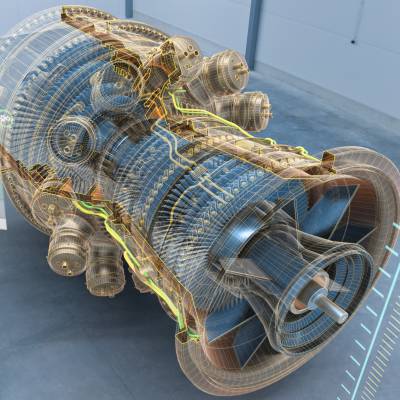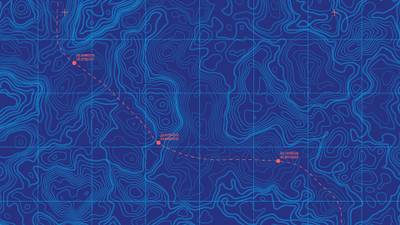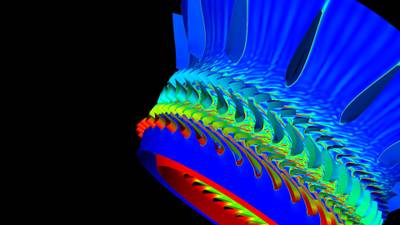Access finite element method training online.
Join us online to learn about the finite element method (FEM).
Finite element methods are used to solve a wide variety of engineering problems. In this course, we focus on static and dynamic mechanical problems.
With expert guidance, you’ll develop your understanding of:
- FEM and finite element analysis
- how FEM is used in a range of industrial applications
- ABAQUS, the finite element software.
You’ll learn from highly experienced academics and engineers, and build new skills in a range of finite element analysis methods.
Who can join this finite element method course?
This course is for those who want to study the theory and uses of finite element methods and gain knowledge in ABAQUS.

Build credits towards a Masters degree
This online course is part of:
You can use the credits you earn with this short course towards either of these MSc qualifications.
What you’ll study
In this course, you’ll learn about the finite element method (FEM) and its use in various industrial applications.
You’ll cover topics including:
- the modelling of linear static and dynamic problems
- the modelling of material and geometric non-linearity
- statical load of structures
- fundamental equations of mechanics of solids (kinematics, equilibrium and constitutive)
- dynamic linear analysis
- static non-linear analysis
- dynamic non-linear analysis.
ABAQUS software
You’ll also learn to use ABAQUS, the finite element software.
By the end of the course, you’ll be able to solve problems on static and dynamic loading using both hand calculation and ABAQUS.
By the end of this course, you’ll be able to...
-
Describe the basic principles of FEM.
-
Explain equilibrium, compatibility, and the principle of virtual work.
-
Solve static problems using hand calculation, including loading of truss and bar systems, evaluation of stresses using isoparametric elements, and representation of distributed load.
-
Describe what modal method, nonlinear analysis, and contact mechanics nonlinear dynamic analysis are.
-
Solve static and dynamic problems using ABAQUS software.
Choose the University of Aberdeen for online FEM training

Earn as you learn
We fit around full-time work, so you can build qualifications while you keep earning a salary.

You’re in expert hands
We’ve been training world-class engineers for over 100 years and delivering online learning for decades.

20% alumni discount
University of Aberdeen alumni get 20% off fees for this online course.
How you’ll study
Online learning
This distance-learning FEM training course is delivered flexibly, 100% online.
You can learn with us anywhere in the world, no student visa required, and manage your study hours to suit you.
Your teaching
This course is taught at Masters level.
Teaching is delivered through MyAberdeen, our online Virtual Learning Environment (VLE). It holds all the materials, tools and support you’ll need in your studies. Take a look around MyAberdeen.
You can access your learning materials on computer, smartphone and laptop, 24 hours a day. You’ll find a range of resources available, including:
- pre-recorded video lectures
- online tutorials
- online ABAQUS workshops
- reading materials
- discussion boards with your tutors and peers
- online access to our award-winning Sir Duncan Rice Library.
Your tutors
This course is delivered by an internationally experienced team of academics and engineers from our School of Engineering.
This course is assessed online.
You’ll be assessed throughout your studies via:
- two reports (each worth 25% of your final course grade), and
- an online exam (50%).
The course totals approximately 150 hours of study and assessment time. That’s around 10 – 15 hours per week.
This is an indicative guide to the time required for a typical student at this level to achieve the learning outcomes. This includes time for independent study, as well as teaching and assessments.
You can largely set your own study hours each week to cover the materials. MyAberdeen is available 24/7, so you can log in and study when it suits you.
Activities with deadlines
There will be some activities scheduled at fixed times, such as assessments with deadlines, or meetings with your tutor. But otherwise, you can access and work through the course at your convenience.
Our first-class support structure will ensure that you aren’t alone in your studies. You’ll have contact with your tutors via MyAberdeen and email. You can use social media and discussion boards to chat with your fellow students too.
We provide a wide range of services to support you in your studies and beyond:
- Careers and Employability Service
- Disability support
- IT support
- Library support
- Student Support Service – help with finances, wellbeing and non-academic issues
- Student Learning Service – study support, with advice sessions available
- Aberdeen University Students’ Association (AUSA) – run by students for students
- Toolkit – clever apps and free training that can make your study life easier
Wherever you are in the world, you’ll feel part of our very special Aberdeen learning community.
Your teaching team

Dr Marina Menshykova – Course coordinator
Marina is a Senior Lecturer in Engineering at the University of Aberdeen. She has a PhD in Solid Mechanics.
Marina’s research has included the study of elastic homogeneous materials with cracks under harmonic loading.
View Marina’s profile
Dr Mehmet Kartal
Mehmet is a Reader in Mechanical Engineering in our School of Engineering.
His research interests include micromechanical modelling, contact mechanics, experimental mechanics, and the mechanics of materials.
View Mehmet’s profileWhere this will take you
Towards a Masters
You’ll earn 15 credits at Masters level (SCQF Level 11) with this course. You can use these credits towards the following online degrees.

Masters in Advanced Mechanical Engineering
Earn your MSc in Advanced Mechanical Engineering online. Study flexibly and build the advanced skills demanded by the world’s leading employers in the automotive, energy, defence, aerospace, and manufacturing sectors.
View MSc Advanced Mechanical Engineering
Masters in Advanced Structural Engineering
Prepare for a career in the aerospace, automotive, and energy sectors, as well as civil, structural, and construction, with our flexible online Masters degree.
View MSc Advanced Structural EngineeringCareers
Finite element methods are used to solve a wide variety of engineering problems.
In this course, you’ll develop sought-after skills in the use of FEM for static and dynamic mechanical problems.
Your learning can help you to progress within careers including:
- mechanical engineering
- structural engineering.
Continuing Professional Development (CPD)
Your employer or professional institute may recognise this course for CPD hours. Talk to your employer or institute to find out more.

Free career support
Access our free careers service while you study.
- 1:1 appointments
- CV checks
- Interview prep
- Job opportunities
Entry requirements
Entry requirements
We welcome students from all over the world.
This course has no formal entry requirements. You do not need to provide proof of your qualifications.
But you do need to check the entry guidance above to understand the level of teaching delivered, to decide if this course is right for you.
If you do not have qualifications from the UK, check the equivalent teaching level for your country.
Visa requirements
You do not need a student visa to study online with us.
English language requirements
Teaching is delivered in English.
You do not have to provide proof of your English language skills to join this course. But we want to make sure that you can use English well enough to study successfully.
Recommended level of English
For this course, we recommend the following level of English language proficiency.
These are our Postgraduate Standard requirements, and these are minimum scores.
IELTS Academic, IELTS UKVI Academic, or IELTS Online (not IELTS Indicator or IELTS General Training)
- 6.5 overall
- 5.5 for listening, reading and speaking
- 6.0 for writing
TOEFL iBT or TOEFL iBT Home Edition
- 90 overall
- 17 for listening
- 18 for reading
- 20 for speaking
- 21 for writing
- TOEFL DI code is 0818
Cambridge English: B2 First, C1 Advanced, or C2 Proficiency
- 176 overall
- 162 for listening, reading and speaking
- 169 for writing
LanguageCert Academic / LanguageCert Academic SELT
- 70 overall
- 60 for listening, reading and speaking
- 65 for writing
Oxford ELLT Digital – English Language Level Test Online
- 7.0 overall
- 5.0 for listening, reading and speaking
- 6.0 for writing
PTE Academic (online test not accepted)
- 62 overall
- 59 for listening, reading, speaking and writing
Skills for English: SELT
- B2 pass with merit
Duolingo – tests taken from 1 July 2024 onward
- 120 overall
- 95 for listening, reading and speaking
- 105 for writing
University of Aberdeen English Pre-sessional Programme (PSE)
- Pass
- Valid for one year. Refresher can be offered if out of date
Pre-sessional academic English preparation programmes undertaken at other UK universities
- Pass at an equivalent of 6.5 (C1)
- B2 in all four skills
- Certification must be within one year prior to the start of your course
For full information about language requirements, see our English Language Requirements page.
You will need access to:
A computer (PC, laptop or Mac) with an up-to-date operating system
Most teaching materials are smartphone- and tablet-friendly. But we recommend a proper laptop or desktop for completing assignments comfortably.
Reliable internet access
We recommend:
- a wired connection
- a minimum download speed of 2 Mbps so you can take part fully in live sessions.
Speakers or headphones
- We recommend a headset with built-in microphone and earphones if you’re likely to study in an environment with background noise.
- A webcam is optional, but you may like to use one for some interactive sessions.
Software
We’ll give you access to Office365 applications. This means you can use online versions of Microsoft Word, Excel, PowerPoint and OneDrive and install these programs on up to five personal devices.
If your course requires specialist software, we’ll provide you with access to this and a licence that lasts throughout your studies.
See our detailed IT requirements for more information.
When you study with us, you can expect a first-class support structure so that you’re never alone in your studies.
But learning online does mean you have to motivate yourself and manage your own time.
Your most important commitment will be time – the time to work through, reflect on and understand your teaching materials.
Before you start a course that involves a high degree of independent study, we recommend looking at the time you will be able to devote to your studies each week:
- Be realistic
- Create a weekly schedule as a guide
If you have any questions about studying online, get in touch with our friendly team. We’re here to help.
Fee payment
Your course fee needs to be paid in full before you start your course.
We accept payment via Visa Debit, Visa Credit and Mastercard.
Ways to save
You may be able to get help funding this course via:
- discounts – if any discounts are available for this course, they’ll appear in the section below
- employer sponsorship – we accept full and partial fee payments from sponsors.
Find out more about funding options.
Student card
All our students are entitled to a University of Aberdeen student card. This gives you access to a range of student discounts around the city and online.
Learning resources
Access to all the books and resources you need are included in your tuition fee. They’ll be made available to you online and you do not have to buy your own copies.
Printing
You may wish to set aside a small budget for printing, depending on how you like to work.
This course has no formal entry requirements. You decide if it’s suitable for you.
The course is delivered at Masters level. At this level, you’d usually have at least:
- a 2:2 UK honours degree (or equivalent) in a relevant subject, or
- relevant experience that supports this level of learning.
You should have some knowledge of mechanics and mathematics, including an understanding of matrices, differentials, and integrals.



























































